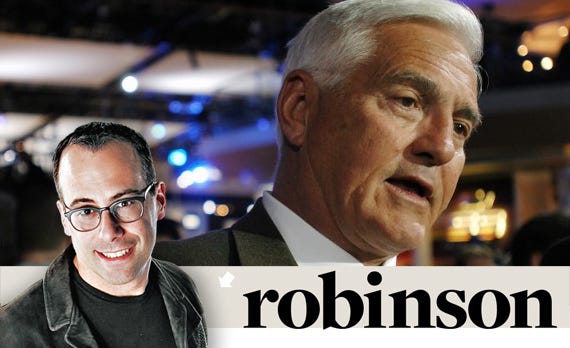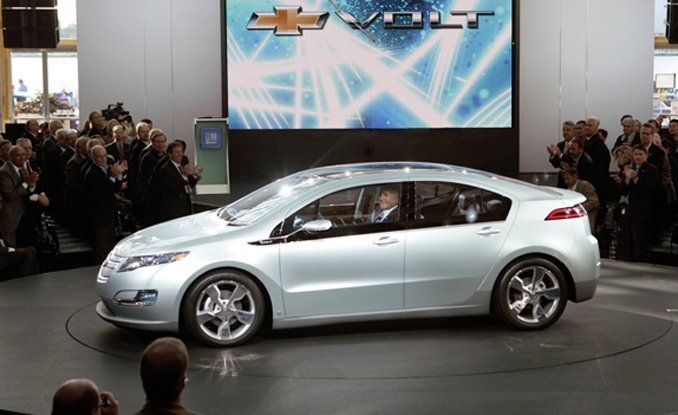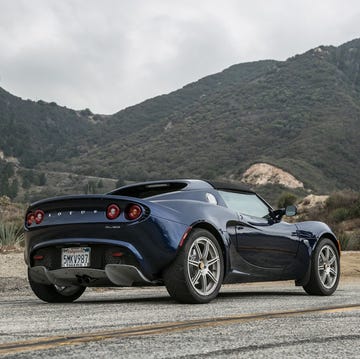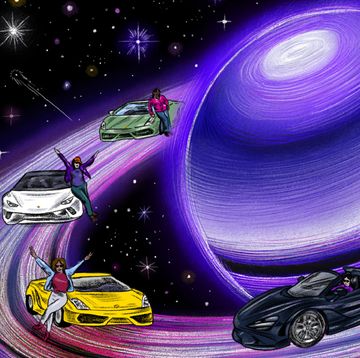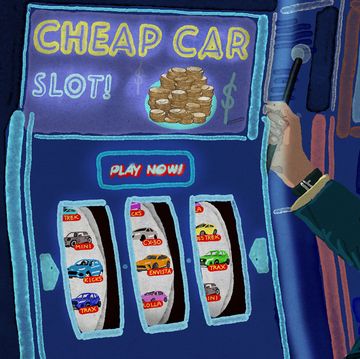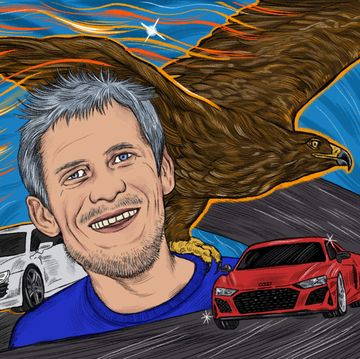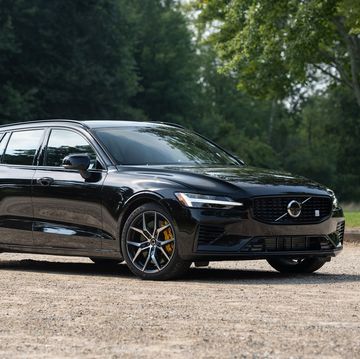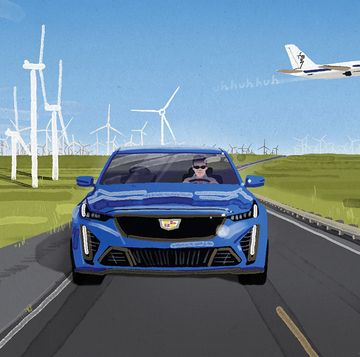Former GM vice-chairman Robert Lutz recently plunged into a milling crowd in front of the SVA (School of Visual Arts) Theatre in lower Manhattan’s Chelsea neighborhood. His hair was the usual silver helmet, but his skin was preternaturally tan, like it had been anodized. Somebody said he had just flown in from the Caribbean.
My old college pal Jeff wanted a picture, so I leveled the camera at the two of them when an obliging Lutz agreed to share the frame. Jeff is tall, but in the shot it looks like his arm is around a towering Navajo god. As Lutz moved on, a passerby whispered at me, “Who is that?”
That, had I had more than a New York minute to explain, is a doyen, a sachem—nay, a caesar—of the auto industry, who, after decades of working the throne rooms of Ford, Chrysler, and GM, and after famously calling global warming “a total crock of shit,” is about to explode his public persona—one richly endowed by fuming cigars, fuming Dodge Vipers, and fulsome stock options—and reincarnate it in a way that will dumbfound critics and electrify (in some cases, literally) his legions of sycophantic disciples.
But I could see the woman was in a hurry, so I just said, “Captain America.”
Inside, as part of the Tribeca Film Festival, a new documentary called Revenge of the Electric Car was about to première. It opens with Dan Neil, Wall Street Journal auto critic and one-time Car and Driver contributor (we are so proud), as he cruises a constipated L.A. freeway in a new Ford Mustang, meditating on his disillusionment with the conventional automobile.
Anybody who has seen the film’s 2006 precursor, Who Killed the Electric Car? knows that writer/director Chris Paine is in a similar mental orbit. In that flick, a heartless GM sabotages the green-car movement by destroying its orphaned EV1 electric cars and, thus, the lives of the car’s celebrity groupies, including actor Ed Begley Jr., whom you may remember from such films as Cockfighter and Lust of a Eunuch.
Paine’s engrossing sequel quickly establishes that others in industry and society have arrived at the same conclusion as Neil. The film’s antihero is Nissan CEO Carlos Ghosn, who, according to the story line, has staked billions of dollars on the Nissan Leaf and the vehicles to follow. Ghosn is portrayed as an industrial samurai circulating ice water in his veins, who chooses to walk the green path out of detached calculation.
Meanwhile, you can’t help feeling both enamored and repulsed by quixotic Tesla Motors founder Elon Musk. His perennially baggy eyes look doleful as he recounts staving off a nervous breakdown. By his side is his bonny new wife, British actress Talulah Riley, 25, here playing a mother to the five kids Musk procreated with the previous one.
Finally, monolithic GM returns, but as in so many popcorn sequels, the evildoer is revealed to have a softer, more nuanced side. Imagine our slack-jawed shock to find the clay-skinned, crock-stirring, czar-of-denial himself, Bob Lutz, playing one of the partisans facing down the OPEC onslaught.
The old GM once stonewalled Paine. The new GM ushers the cameras past the security goons and right up to the executive Kool-Aid stand, where Lutz is serving it up in flagons. In the resulting film, the vice-chairman appears to reverse completely his earlier antipathy toward global warmers and become, by all appearances, GM’s lone champion of alternative vehicles. The film could aptly have been called Revenge of Maximum Bob, or How I Learned to Stop Worrying and Love the Lithium-Ion Battery.
Paine’s cameras fixate on Lutz as he struggles to get the Chevy Volt into production against an unseen and supposedly resistant bureaucracy, a collapsing economy, and GM’s government takeover. Only insiders will espy his PR minder at the time, Dee Allen, lurking in almost every shot. During an ebullient montage, the Volt, the Leaf, and the Tesla finally roll off assembly lines in seemingly copious quantities. The movie fades to black as a retired Lutz smokes a stogie in his palatial garage and reflects on a career that is sunsetting to an exultant high note for the planet.
Declaring electric vehicles inevitable seems, as radiation seeps from a Japanese reactor, like declaring the French Revolution a success just as they’re leading Robespierre to the guillotine. Still, I don’t reject the film’s narrative entirely. It’s about people, and maybe it happened just that way. Or maybe not. In his new book, Car Guys vs. Bean Counters: The Battle for the Soul of American Business, Lutz is again the old global-warming cynic. This time it’s not a crock but a “limping, flat-tired bandwagon” off of which scientists are supposedly leaping. Will the real Bob please light up?
Ultimately, I wonder if Paine caught Lutz in a Kafkaesque metamorphosis into an enviro-warrior, or if he handed a wily operator with 48 years of practice at gulling the press an irresistible opportunity to greenwash his image. At 79, Lutz has nothing to lose by publicly trimming his sails to any prevailing wind. With Revenge, I’m less convinced our man has embraced global warmers than executed the perfect snow job.
